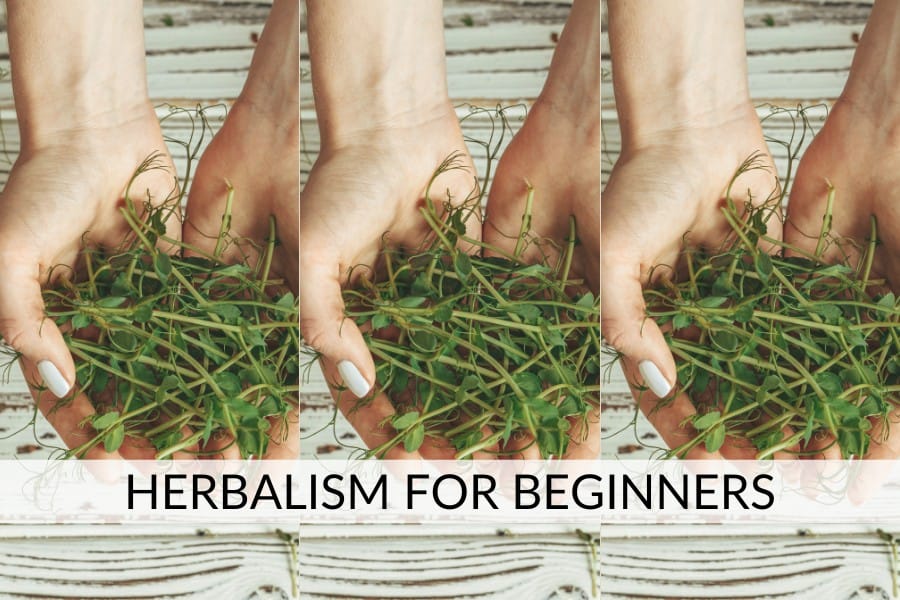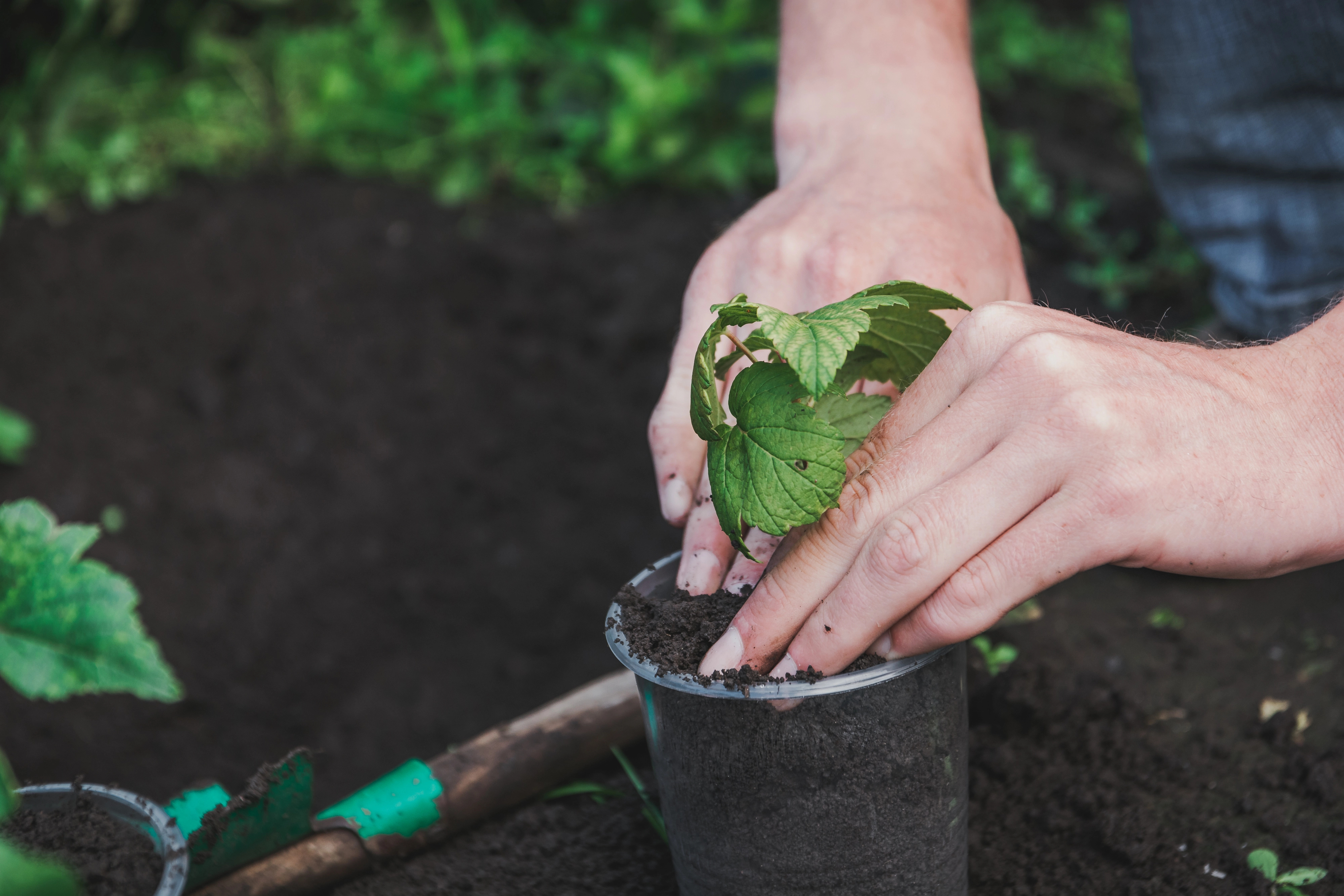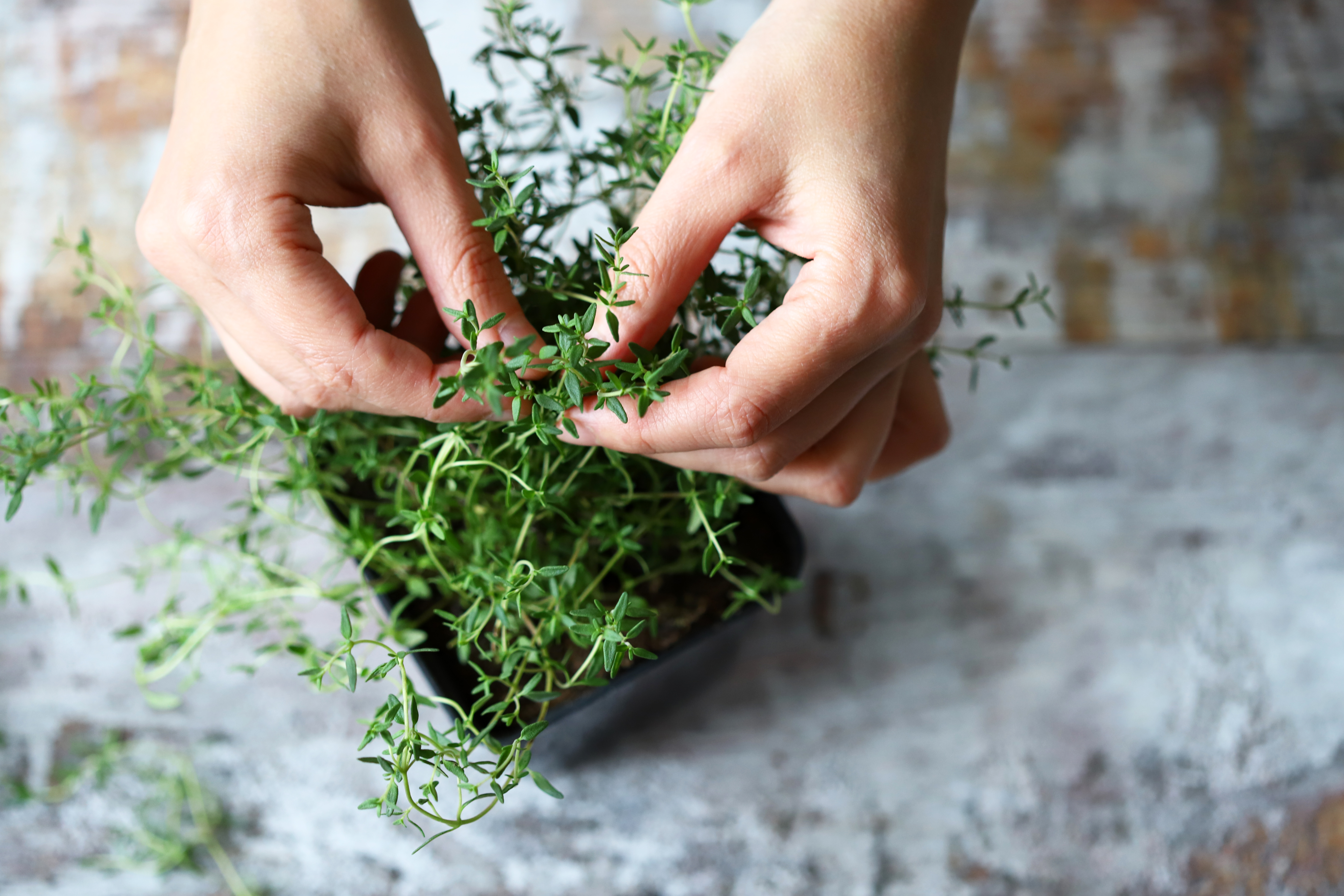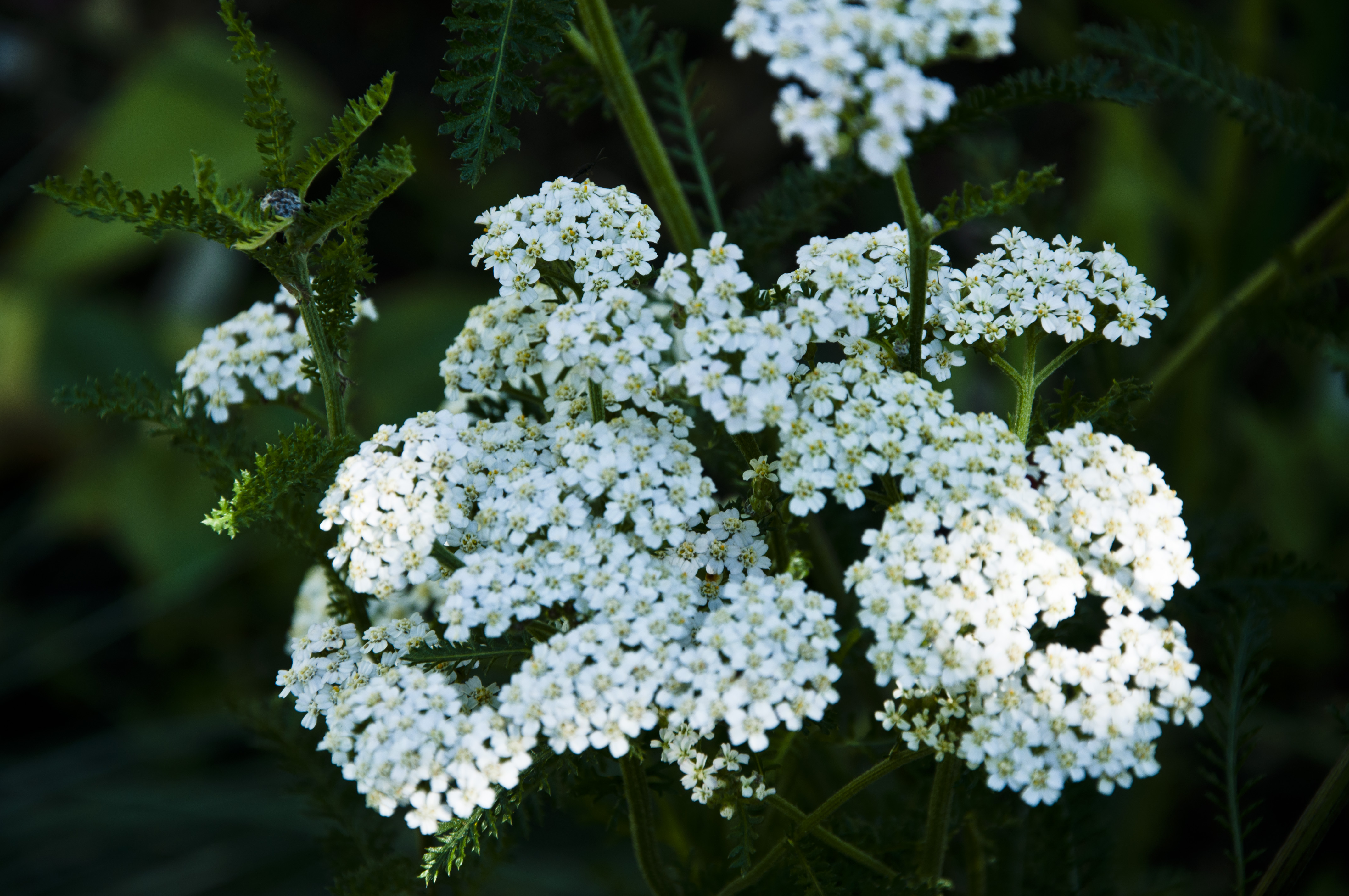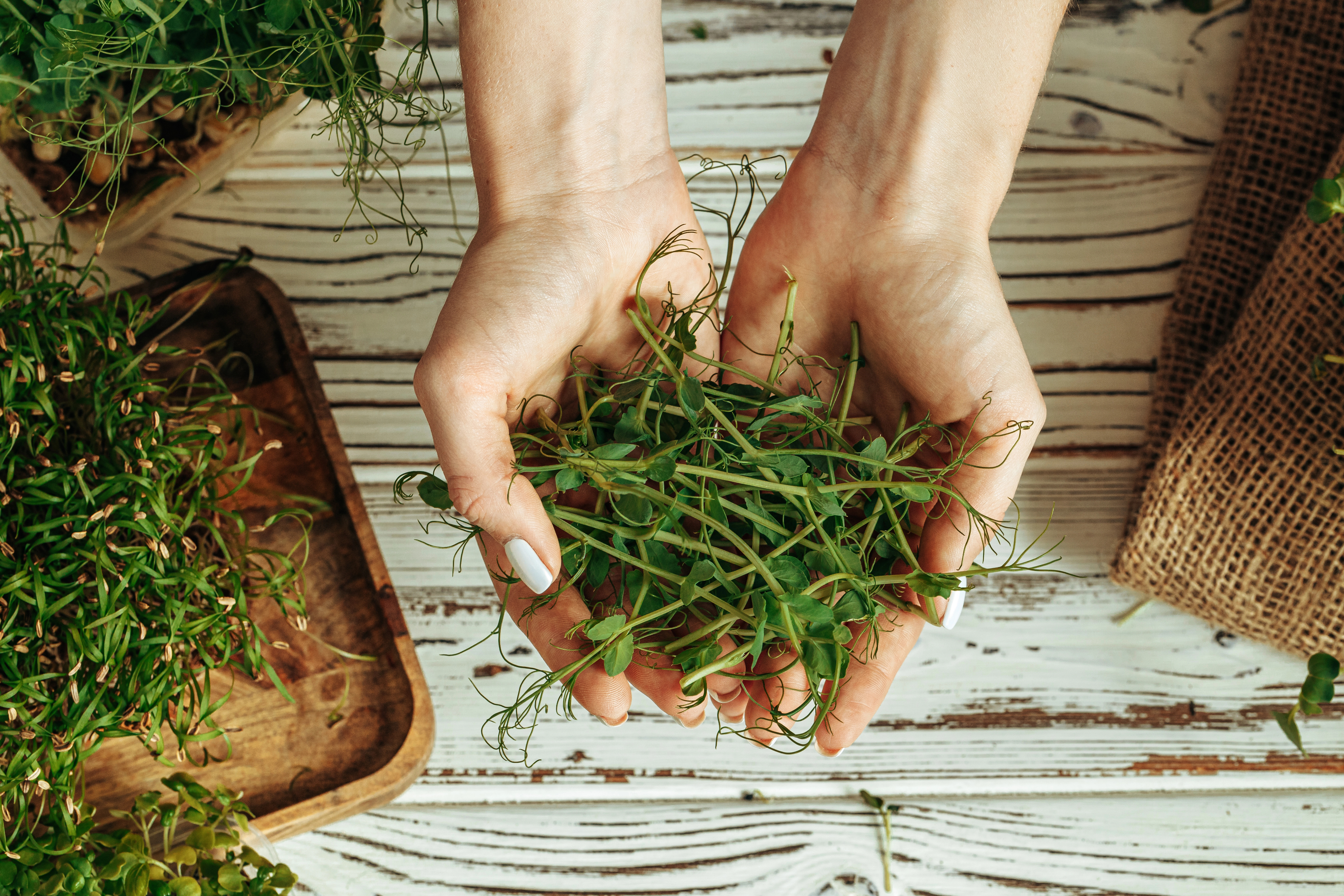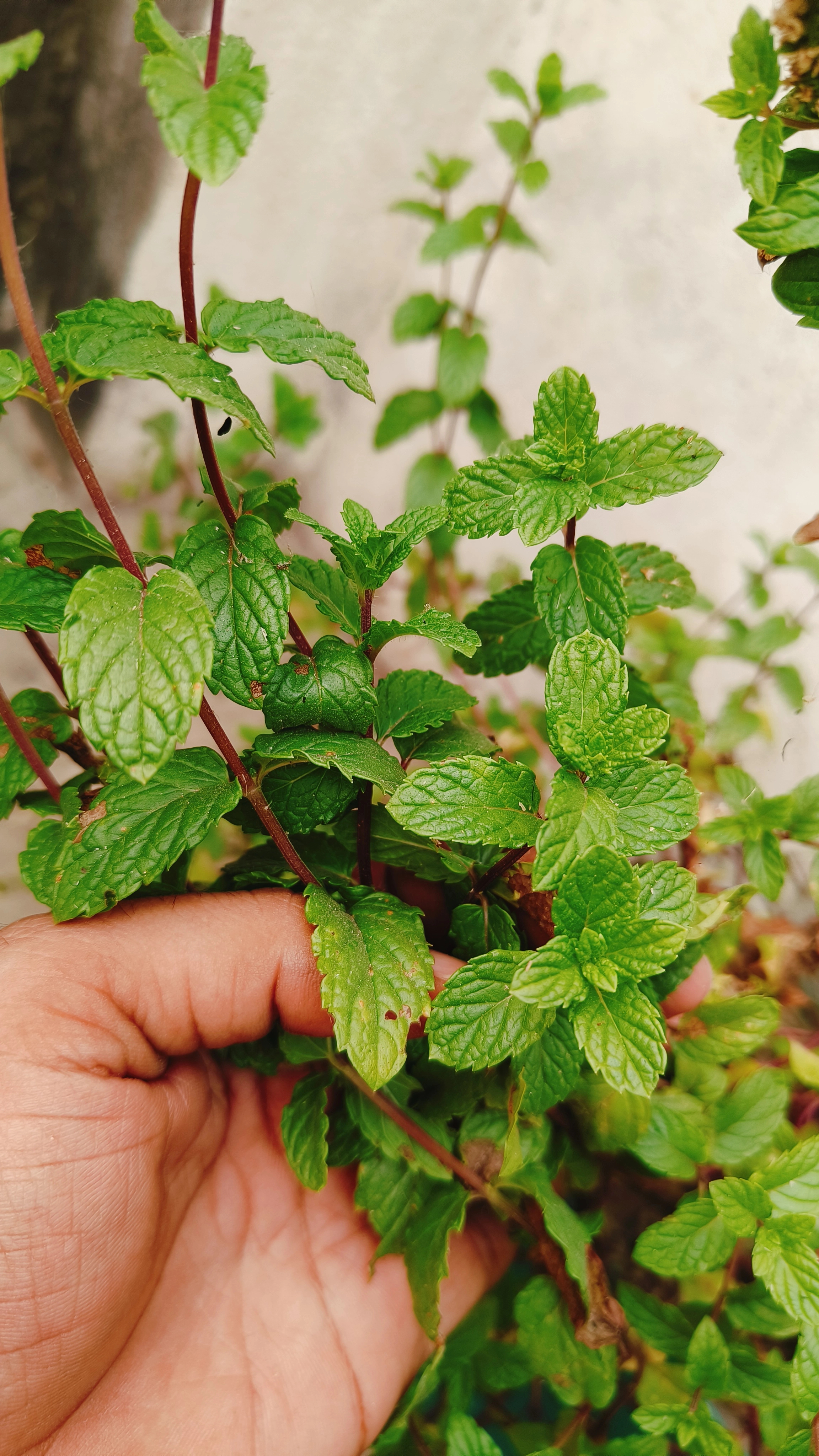Learn herbalism for beginners and start making medicine at home. It does not need to be hard, in fact, it is easy and affordable!
Disclosure: This post may contain affiliate links. If you click and make a purchase, I may earn a commission at no extra cost to you. Learn more here.
As a brewer and fermenter, I try to add herbal practices into my brews as much as possible. A lot of times the beers, wines, and sodas I make are herbal. Not only for flavor and aromatics, but for a little medicinal boost.
Our closest herbal alleys can even be in our local grocery stores: tumeric, ginger, rosemary, etc. Practicing herbalism can be rewarding and simple, or it can be more complex the more you dive into it.
You will learn what constitutes as herbalism, the ways to practice herbalism, how to start practicing herbalism, lists of herbs you can start studying today, and get a glimpse of the path to become an herbalist either as a profession or pleasure.
(This is not medical advice, nor should you take this as medical advice, please consult your doctor before engaging in herbal medicine practices.)
This post is all about herbalism for beginners.
Beginners Guide to Herbalism
Inviting herbs into your health care routine is a rewarding and expansive practice. The vast world of herbs can guide you to amazing food and drinks, or be an alley in your medicine cabinet.
Either way herbalism can play a huge role in our lives, if we want it to.
What is Herbalism?
We can use herbal medicine: daily for preventative measures, every once in a while for acute minor issues, or even for chronic issues.
At this point, herbalism is a field of study that studies the medicinal and therapeutic use of plants, also seen as an alternative medicine.
More and more people are turning towards alternative medicine for preventative measures and long term vitality.
The great thing is we can learn this practice on our own and integrate it into our lives.
Herbalism can be practiced through:
- Teas
- Tinctures
- Soaps
- Essential oils
- Gardening & foraging
- Fermentation
- Tonics & elixirs
- Salves
- Lip balms
- Cooking
- and more!
The study of herbs is vast and there is much to make to integrate lovely plants into our lives.
RELATED POST: Here’s What Happens When You Take Herbalism on a Date…
Though, herbalism does not end with the medicinal properties of plants. The study of plant spirit medicine is a deep dive into the spirit of plants and the wisdom they share.
Some herbs can enhance dreams, often creating very vivid dreams, and it is said that these dreams are the plant spirits trying to connect and share their guidance.
The list is quite extensive on how to practice herbalism, plus exploring the plant’s spirit, you will be very busy!
You can start with making simple teas, then be well on your way to long term health and vitality in various niched ways!
How to Start Practicing Herbalism
As you see the long list of ways to incorporate herbalism, you may be wondering where to begin. Online courses, local herbalist workshops in your area, or books are a great starting point!
Popular herbalism books:
Popular herbalism courses & retreats:
- Herbal Academy’s “Introductory Herbal Course“
- Casa Curitva’s “Foundations in Herbalism” in-depth retreat in Guatemala
- Rosemary Gladstar’s “The Science & Art of Herbalism”
- Other herbal schools around the US – this list is extensive!
Books are budget and time friendly ways to start learning about herbalism. As you can see from Mountain Rose Herbs books collection, there are endless amounts of books and elements to learn.
Courses are perfect if you are ready to take a deep dive into practicing herbalism for beginners! They require a bit more time and money to invest, but are well worth it.
List of Herbs to Start Studying
When I started out researching herbalism I had no idea where to start, where to get herbs, how to find new herbs to try, what resources are best, etc. So, here is a list of commonly uncommon herbs.
You can do your own research to learn their benefits and how to use them. This list is the herbs I either live by or am trying out right now.
Mountain Rose is an amazing place to get dried herbs, tinctures, and more! They are all organic and ethically produced, you know you are getting good quality herbs, and they can be delivered right to you!
Herbs to Start Studying:
- Motherwort
- Oatstraw
- Lemon Balm
- Yarrow
- Red Raspberry Leaf
- Red Clover Flower
- White Willow Bark
- Meadowsweet
- Lavender
- Chamomile
- Dandelion Root
- Burdock Root
- Valerian Root
These lovely herbs can help you sleep, be an alternative to NSAID’s, be supplements for different vitamins and minerals, and so much more.
RELATED POST: 11 Transformative Herbal Medicine Recipes to Try for a Healthy Season
Start with tea. Tea is the easiest way to practice herbalism, and you get to interact with the herb itself. Then, you can move into tinctures, wine making with herbs, even herbal beers, and more!
How to Become an Herbalist
The path to becoming an herbalist does not follow the same line as, say, a doctor. There is no “clinical herbalist” title where you can prescribe herbs to clients.
Here are the three ways in which someone can become an herbalist for pleasure or profession:
#1. Engage in courses and some hands-on work.
To become an herbalist for pleasure, it is quite easy. In fact, you get to take courses at your leisure, workshops, books, etc.
Retreats abroad, or domestic, can be a great opportunity to immerse yourself in nature and natural medicine.
Some even offer daily yoga classes with options for saunas, fire ceremonies, etc.
#2. Become a registered herbalist.
If you want to work in or own your own apothecary, then becoming a registered herbalist with the American Herbalists Guild is for you.
To become a registered herbalist:
- Aquire 800 hours of botanical medicine education.
- Work at least 400 hours in a clinical setting, with 300 being direct patient work
- Complete the written exam
- Lastly, have letters of recommendations.
Registration to the AHG is not required to practice herbalism. Though, you get entered into the AHG’s Registered Herbalists Database.
#3. Become a Licensed Medical Practitioner
For those who are looking to be able to diagnose, prescribe, and treat patients with certain medicines or treatments, you can become a licensed medical practitioner.
Medical school is a large investment in time and money, and know that you can’t get a certification in herbalism.
You can, however, study naturopathic medicine or other licensed profession and use your herbal studies to support your practice.
A couple places you can study at:
Overall, herbalism for beginners shows you the vast world waiting to be explored. The more you learn, the deep it gets, and the journey continues.
Enjoy it, and follow us on Pinterest for more DIY inspiration, herbal recipes, and more!
This post was all about herbalism for beginners.
Other Posts You May Like…
✓ This Alone Will Change Your Relationship to Alcohol | How to Stop Drinking (Home Remedies)
✓ Top 5+ Life-Changing DIY Adult Projects You Won’t Want to Miss
✓ 11 Beautiful & Traditional Fermented Drinks for Gut Health From Across the Globe

